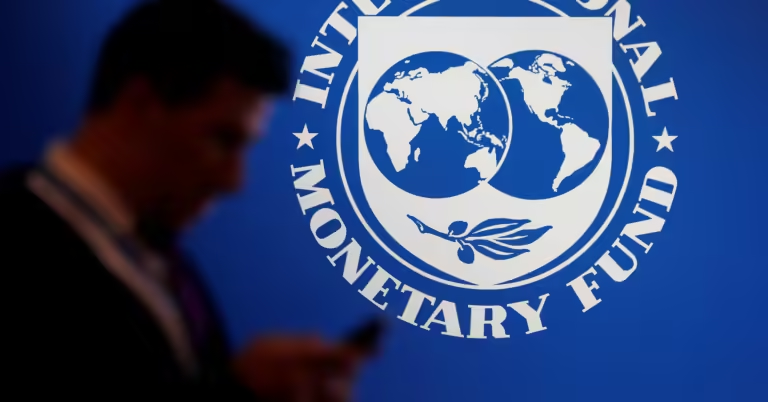The International Monetary Fund (IMF) has recently imposed stringent conditions on Pakistan, focusing on energy subsidies and provincial budget management, after the Punjab government made a controversial decision to offer electricity subsidies amounting to between Rs45 billion and Rs90 billion for a two-month period.
Background on Subsidy Controversy
Government sources reported to The Express Tribune that the IMF has set at least three critical conditions targeting the Punjab government. This follows Punjab’s decision to provide a Rs14 per unit subsidy on electricity for two months. The IMF has insisted that this temporary subsidy be withdrawn by September 30th, 2024, and clearly stated that no provincial government would be allowed to introduce any similar subsidy during the 37-month Extended Fund Facility (EFF) programme.
IMF’s Conditions and Impact on Solar Panel Scheme
The new conditions may undermine Punjab’s ambitious plan to allocate Rs700 billion for distributing solar panels to households with a monthly electricity consumption of up to 500 units. According to the newly imposed conditions, “The provinces agree that they will not introduce any subsidy for electricity or gas.” This stance by the IMF questions the claims made by provincial governments about their autonomy to grant such subsidies, challenging even Prime Minister Shehbaz Sharif’s previous encouragement for other provinces to follow Punjab’s lead.
Factors Leading to High Electricity Costs
Several factors have contributed to the unaffordability of electricity for most residential consumers in Pakistan. These include:
- Poor Governance: Inefficient management practices leading to losses.
- High Line Losses: Technical and non-technical losses during transmission and distribution.
- Increased Taxation: Additional taxes that raise the overall cost of electricity.
- Burden of Subsidies: Placing the financial burden of subsidies on consumers using over 300 units per month.
- Expensive Agreements: Costly power purchase agreements and contracts.
These elements have led to electricity costs ranging from Rs64 to Rs76 per unit for residential and commercial users. Instead of addressing these underlying issues, both the federal and Punjab governments opted for a temporary solution through a two-month subsidy.
Details of the Subsidy Plan
In August and September 2024, the Punjab government approved a Rs14 per unit subsidy on electricity bills for consumers using between 201 to 500 units per month, covering the Punjab province and Islamabad. While the provincial finance minister estimated the subsidy cost at Rs90 billion, Chief Minister Punjab projected a lower figure of Rs45 billion.
Additional IMF Conditions and Fiscal Constraints
Apart from prohibiting new subsidies, the IMF introduced another condition to ensure provincial governments refrain from policies that might undermine the commitments made under the $7 billion EFF programme. This clause effectively limits the fiscal autonomy of all four provincial governments, binding them to adhere to a National Fiscal Pact by the end of September. The pact aims to shift some federally sponsored expenditures to the provinces.
Taxation Reforms
Provincial governments have also committed to improving revenue collection by enhancing agriculture income tax, property tax, and sales tax on services. The IMF’s stipulation that provinces must not take unilateral fiscal actions reinforces the need for coordinated fiscal management.
Consultation Requirement for Provincial Measures
According to a third critical condition imposed by the IMF, provincial governments must consult the Finance Ministry before implementing any policies or measures that could affect the structural benchmarks and key actions agreed upon with the IMF.
Challenges in IMF Programme Approval
Pakistan’s new IMF programme, still pending approval, covers five fiscal years and involves budget and policy oversight across multiple governments. The finance ministry is currently seeking a date for the IMF Executive Board’s meeting to approve the $7 billion facility. Although initially scheduled for August 30th, the meeting was postponed due to Pakistan’s failure to secure the rollover of $12 billion in loans and arrange an additional $2 billion in new financing.
In an effort to secure $800 million in new financing, the finance ministry approached foreign commercial banks again on Monday. The IMF has shown a particular focus on provincial budget management, scrutinizing recent revenue estimates from Punjab and Sindh, which it considers overly optimistic and potentially problematic for achieving required cash surpluses.
Federal and Provincial Coordination for Cash Surpluses
The federal government relies on a Rs1.24 trillion provincial cash surplus to meet the IMF’s core condition of maintaining a primary budget surplus. However, the Federal Board of Revenue’s (FBR) failure to meet its two-month revenue target by Rs98 billion, despite taking advance payments, casts doubt on the provinces’ ability to generate the necessary surpluses.
Issues with Federal Government’s Subsidy Measures
It’s not just the Punjab government’s subsidy plan that has complicated the IMF programme’s approval. The federal government’s decision to allocate Rs2.8 trillion to reduce electricity prices by up to Rs6 per unit has also raised IMF concerns. Pakistan’s recent proposal to the IMF involved reducing electricity prices by Rs6 per unit, assuming Rs1.4 trillion contributions from all four provinces, including Khyber-Pakhtunkhwa, and securing additional commercial loans. However, the IMF has not yet approved this plan, deeming it based on unrealistic assumptions.
Summary Table: Key IMF Conditions and Their Impact
| Condition | Description | Impact |
|---|---|---|
| End of Temporary Subsidy | Withdraw Rs14/unit subsidy by September 30, 2024 | Limits provincial autonomy on energy policy |
| No New Subsidies Allowed | No electricity or gas subsidies during EFF period | Affects provincial plans for consumer relief |
| National Fiscal Pact Requirement | Provinces to share costs currently borne by federal govt | Increases fiscal responsibility for provinces |
| Consultation Before Policy Changes | Provinces must consult Finance Ministry on fiscal matters | Restricts unilateral fiscal decisions |
| Tax Reforms Commitment | Improve agriculture, property, and sales tax collection | Boosts provincial revenue generation |



Leave a Comment